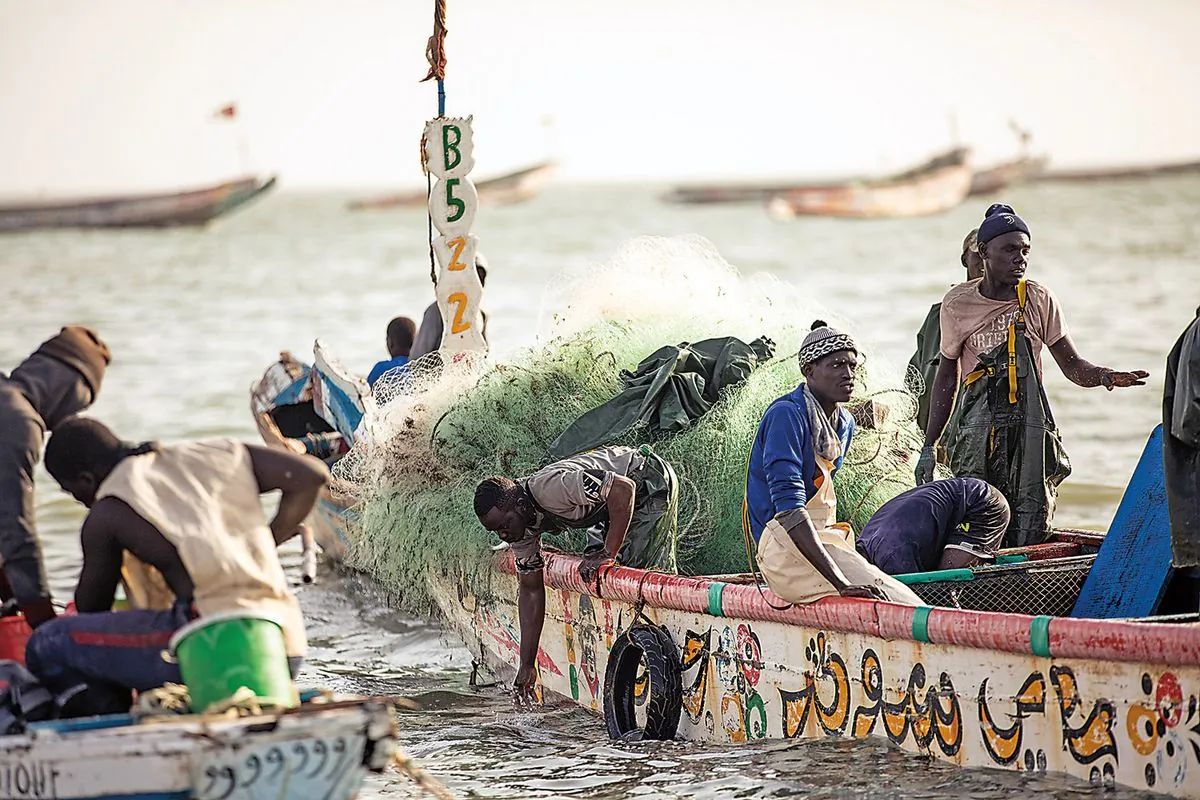Senegalese Youth Risk Lives for European Dreams Amid Fishing Crisis
Senegalese youth continue dangerous Atlantic crossings to Spain, driven by economic hardship. EU efforts and Spanish diplomatic missions aim to address root causes of migration from West Africa.

In the coastal village of Thiaroye-sur-Mer, a suburb of Dakar, Salamba Ndiaye's story echoes the aspirations and struggles of many young Senegalese. At 28, Ndiaye has already attempted the perilous journey to Spain twice, embodying the desperation driving thousands to risk their lives crossing the Atlantic.
Since January 2024, over 22,300 individuals have reached the Canary Islands, a 126% increase from the previous year. This Spanish archipelago, located approximately 1,000 km from the West African coast, serves as a gateway to continental Europe for many migrants.
The dangers of this route are well-documented. Migrant rights organization Walking Borders estimates thousands have perished in 2024 alone. Some vessels drift for months, only to be discovered in the Caribbean with grim cargo.
Despite these risks, the mantra "Barsa wala Barsakh" ("Barcelona or die" in Wolof) remains popular among aspiring migrants. Cheikh Gueye, a 46-year-old fisherman from Thiaroye-sur-Mer, explains:
"Even if we stay here, we are in danger. If you are sick and can't pay for treatment, aren't you in danger? So, we take our chances, either we get there, or we don't."
The root causes of this migration trend lie in Senegal's economic challenges. With an unemployment rate of approximately 15% and an average age of 19, the country's youth face limited opportunities. The fishing industry, once a reliable source of income, has been severely impacted by overfishing.
Gueye describes the stark changes: "Now we have to go more than 50 kilometers out before we find fish, and even then we don't find enough, just a little." This decline is attributed to fishing agreements between Senegal and foreign entities, including the EU and China, which allow industrial trawlers in Senegalese waters.

In response to these challenges, the EU signed a 210 million euro agreement with Mauritania in early 2024 to curb smuggling operations. However, its effectiveness remains questionable. Spanish Prime Minister Pedro Sánchez is set to visit Mauritania, Senegal, and Gambia in August 2024 to address irregular migration.
Fatou Niang, Ndiaye's 67-year-old mother, emphasizes the need for local job creation: "These kids don't know anything but the sea, and now the sea has nothing. If you do something for the youth, they won't leave."
As Senegal grapples with these complex issues, the future of its young population hangs in the balance. The country's 531 km coastline, once a source of livelihood, now represents a starting point for dangerous journeys fueled by dreams of a better life in Europe.


































